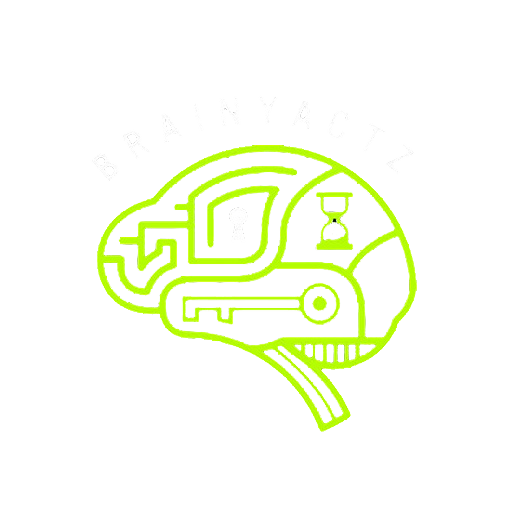Escape rooms provide a unique and immersive environment for developing leadership skills. These interactive challenges simulate real-world scenarios, requiring teams to collaborate under pressure, similar to project management or information security situations. Participants must solve puzzles, manage resources, and work against the clock to succeed. This article explores crafting effective leadership training through escape room challenges. It covers designing engaging narratives, integrating technology, and measuring impact, offering a comprehensive guide to creating powerful learning experiences beyond traditional methods.
Key Takeaways
- Escape rooms develop leadership skills through immersive challenges that test teamwork and problem-solving abilities
- Customized scenarios mirror real-world business situations, enhancing the relevance of leadership training
- Technology integration in escape rooms creates dynamic, data-rich learning environments for leadership development
- Post-challenge debriefs are crucial for translating escape room experiences into actionable workplace strategies
- Escape rooms foster stronger relationships and improve inter-departmental understanding within corporate teams
Unlocking Team Potential With Escape Room Challenges

Escape room challenges are powerful tools for unlocking team potential and developing leadership skills. These immersive experiences blend scavenger hunts, puzzles, and brainstorming sessions to create high-pressure scenarios that test participants’ abilities. By designing challenges that assess teamwork, encourage collective problem-solving, highlight communication dynamics, and identify emerging leaders, organizations can gain valuable insights into their team’s strengths and areas for improvement. These best practices in escape room design not only boost motivation but also provide a unique platform for observing and nurturing leadership qualities in action.
Assessing Teamwork Under Pressure
Escape room challenges create an ideal environment for assessing teamwork under pressure. A skilled facilitator observes participants as they navigate complex puzzles, using artificial intelligence tools to track interactions and decision-making processes. This approach yields valuable insights for leadership development, highlighting effective communication strategies and identifying areas for improvement. The lessons learned from these high-stakes scenarios often translate directly to real-world business situations, making escape rooms a powerful tool for enhancing team dynamics and nurturing future leaders.
Encouraging Collective Problem-Solving
Escape room challenges enable teams to practice collective problem-solving in a unique learning environment. Designers can incorporate storytelling elements, such as a podcast-style narrative, to provide context and engage participants. This approach improves accessibility for diverse team members and encourages collaborative thinking as they work together to unravel the mystery and escape.
Identifying Emergent Leaders in High-Stress Situations
Escape room challenges are excellent for identifying emergent leaders in high-stress situations. These immersive experiences mirror real-world pressures, pushing participants to their limits and revealing natural leadership qualities. As teams face time constraints and complex puzzles, individuals who step up to coordinate efforts, delegate tasks, and mentor others often emerge as potential leaders. Organizers can track these behaviors using worksheets and follow up with leadership development opportunities. Creating time-sensitive challenges, designing puzzles that require diverse skills, and observing natural leadership behaviors help in crafting effective leadership training.
How to Design an Escape Room for Effective Corporate Training

Designing an escape room for effective corporate training transforms traditional leadership development into an immersive experience. By carefully crafting puzzles that align with corporate goals, balancing challenge and solvability, and incorporating real-world scenarios, organizations can create a dynamic environment that tests group dynamics and collective intelligence. This approach not only engages teams but also provides valuable insights into leadership potential, which can be shared through a company newsletter. A well-crafted storyline sets the stage for participants to tackle challenges that mirror workplace situations, fostering skills directly applicable to their roles.
Crafting Puzzles That Align With Corporate Goals
Crafting puzzles that align with corporate goals requires understanding the company’s culture and challenges. Designers create puzzles reflecting real-world issues, like decoding market trends or solving technical problems. These challenges use participants’ existing knowledge while encouraging innovative thinking and problem-solving, which is crucial for leadership development. This involves analyzing company objectives, designing industry-specific scenarios, and ensuring the puzzles promote collaboration and communication.
Balancing Challenge and Solvability for Team Engagement
Balancing challenge and solvability in escape room challenges is essential for engaging virtual teams and developing leadership skills. Designers need to ensure each puzzle aligns with fostering different leadership styles. Music can set the mood and create urgency, helping teams focus on solving problems within the time limit. The key is to create challenges that are challenging enough to push participants but not so difficult that they become frustrated. This involves analyzing team skill levels, incorporating multi-step challenges, providing subtle hints, using time pressure to simulate real-world scenarios, and including tasks that showcase leadership qualities like delegation and creative thinking.
Incorporating Real-World Scenarios Relevant to Your Business
Incorporating real-world scenarios into escape room challenges transforms leadership training into a practical resource. Designers weave content marketing strategies, customer service dilemmas, and industry-specific problems into puzzles, pushing participants to think outside the box. A consultant might craft scenarios that mirror actual business challenges, forcing teams to apply their skills in a high-pressure environment that closely resembles their daily work.
Customizing Escape Rooms for Various Corporate Objectives

Customizing escape rooms for various corporate objectives transforms these challenges into powerful tools for leadership training. By designing scenarios that mirror real-world business situations, organizations can foster critical thinking and develop a deeper understanding of their specific needs. A teacher’s methodology guides the creation of puzzles that focus on customer service scenarios, product knowledge, and leadership development. This tailored approach encourages participants to apply their research skills and engage in active problem-solving, resulting in a more effective and memorable learning experience. As teams navigate these customized challenges, they sharpen their decision-making abilities and communication skills, preparing them for the complexities of leadership roles in their respective fields.
Designing Scenarios for Leadership Development
Designing escape room scenarios for leadership development creates a safe space for teams to explore complex dynamics. These immersive experiences transform any space into an environment where participants can confront realistic conflicts and practice resolution strategies. By integrating training elements into puzzles, designers mirror real-world leadership challenges, fostering growth in a controlled setting. This includes simulating high-pressure decision-making situations, tasks requiring delegation and coordination, ethical dilemmas testing values-based leadership, puzzles emphasizing effective communication, and scenarios needing strategic planning and resource management.
Focusing on Customer Service Scenarios
Escape room challenges focused on customer service scenarios blend real-world skills with leadership development. Designers craft riddles that mirror complex client interactions, pushing teams to navigate health-related complaints or technical issues using Microsoft PowerPoint presentations. This blended learning approach transforms customer service training into an engaging experience that hones both practical skills and leadership qualities.
Tailoring Puzzles for Product Knowledge Training
Tailoring escape room puzzles for product knowledge training turns them into powerful tools for boosting productivity and enhancing leadership skills. These challenges require teams to demonstrate a deep understanding of company products, encouraging strategic thinking. Puzzles might include specification matching to develop attention to detail, product assembly for problem-solving, feature scavenger hunts to enhance information gathering, and troubleshooting scenarios to foster critical thinking. This approach effectively combines product knowledge with leadership training.
Strategic Planning and Problem Solving in Escape Rooms

Escape room challenges are perfect for developing strategic planning and problem-solving skills, which are key aspects of effective leadership. They push teams to think critically, make quick decisions, and adapt strategies in real-time. These experiences allow participants to showcase their strengths and contribute to team success, practicing decision-making skills applicable to real-world business situations. The iterative nature of escape rooms also promotes learning from mistakes, fostering a growth mindset and improving future performance. This training approach equips participants with practical skills transferable to their professional roles.
Emphasizing the Importance of Strategic Roles Within a Team
Escape room challenges emphasize the importance of strategic roles within a team by creating scenarios that require diverse skills and expertise. Designers craft puzzles that demand specialized knowledge, forcing teams to recognize and utilize each member’s unique strengths. This approach mirrors real-world leadership situations, where successful outcomes depend on effectively leveraging individual talents and assigning roles based on expertise rather than hierarchy.
Utilizing Escape Rooms to Practice Rapid Decision-Making
Escape room challenges serve as dynamic training grounds for rapid decision-making skills essential in leadership roles. Teams face time-sensitive puzzles that require quick thinking and decisive action, mirroring the high-pressure situations often encountered in business environments. This immersive experience forces participants to weigh options swiftly, make choices with limited information, and adapt their strategies on the fly, all while working within the constraints of a ticking clock.
Learning From Failed Attempts to Improve Future Performance
Escape room challenges teach teams to learn from failed attempts, fostering resilience and adaptability crucial for leadership development. As groups encounter setbacks, they analyze their mistakes, refine their strategies, and approach subsequent puzzles with newfound insights. This iterative process mirrors real-world leadership scenarios, where setbacks often lead to breakthrough solutions and improved performance.
Post-Escape Room Debrief: Ensuring Lasting Learning Impact

The post-escape room debrief turns the excitement of the challenge into lasting leadership lessons. This phase solidifies learning by guiding teams through reflective discussions, identifying areas for growth, and translating insights into actionable workplace strategies. Facilitators help participants connect their escape room experiences to real-world leadership scenarios, identifying skill gaps for future development. The debrief enables teams to integrate newly honed skills into their daily work, ensuring the impact of the escape room experience extends beyond the challenge itself.
Facilitating Discussions on Lessons Learned and Applications
Facilitating discussions on lessons learned and applications transforms escape room challenges into powerful leadership training tools. Skilled moderators guide teams through reflective conversations, encouraging participants to draw parallels between their escape room experiences and real-world leadership scenarios. These discussions uncover valuable insights into team dynamics, communication patterns, and problem-solving approaches, helping participants translate their newfound knowledge into actionable strategies for their professional roles.
Identifying Skills Gaps and Areas for Future Development
Escape room challenges highlight skills gaps and areas for future development, offering valuable insights for leadership training programs. During debriefs, facilitators assess team performance, identifying strengths and weaknesses in communication, problem-solving, and decision-making. This analysis helps inform targeted training initiatives to address specific needs revealed during the challenge. For example, if a gap is observed in communication, active listening workshops can be introduced. For limited creative thinking, lateral thinking exercises are suggested. Time-boxing techniques can help improve time management, while situational leadership courses can develop clear direction in leadership.
Integrating Training Takeaways Into Everyday Work Practices
Integrating training takeaways into everyday work practices ensures the lasting impact of escape room challenges on leadership development. Teams create action plans to apply newly acquired skills to their daily tasks, fostering a culture of continuous improvement. This approach transforms theoretical lessons into practical habits, reinforcing the value of experiential learning in corporate settings. Examples include implementing daily team huddles to enhance communication, assigning rotating leadership roles in projects to practice decision-making, using collaborative problem-solving in brainstorming sessions, establishing peer feedback systems for accountability, and forming cross-departmental task forces to tackle complex challenges.
Conclusion
Escape room challenges offer a powerful, immersive approach to leadership training, blending real-world scenarios with engaging puzzles that test and develop crucial skills. These experiences foster teamwork, communication, problem-solving, and decision-making abilities in a high-pressure environment that mirrors workplace challenges. By customizing scenarios, integrating technology, and conducting thorough debriefs, organizations can create lasting learning impacts that translate directly to improved performance in professional roles. Ultimately, escape room challenges provide a unique and effective platform for nurturing future leaders, enhancing team dynamics, and driving organizational success.

